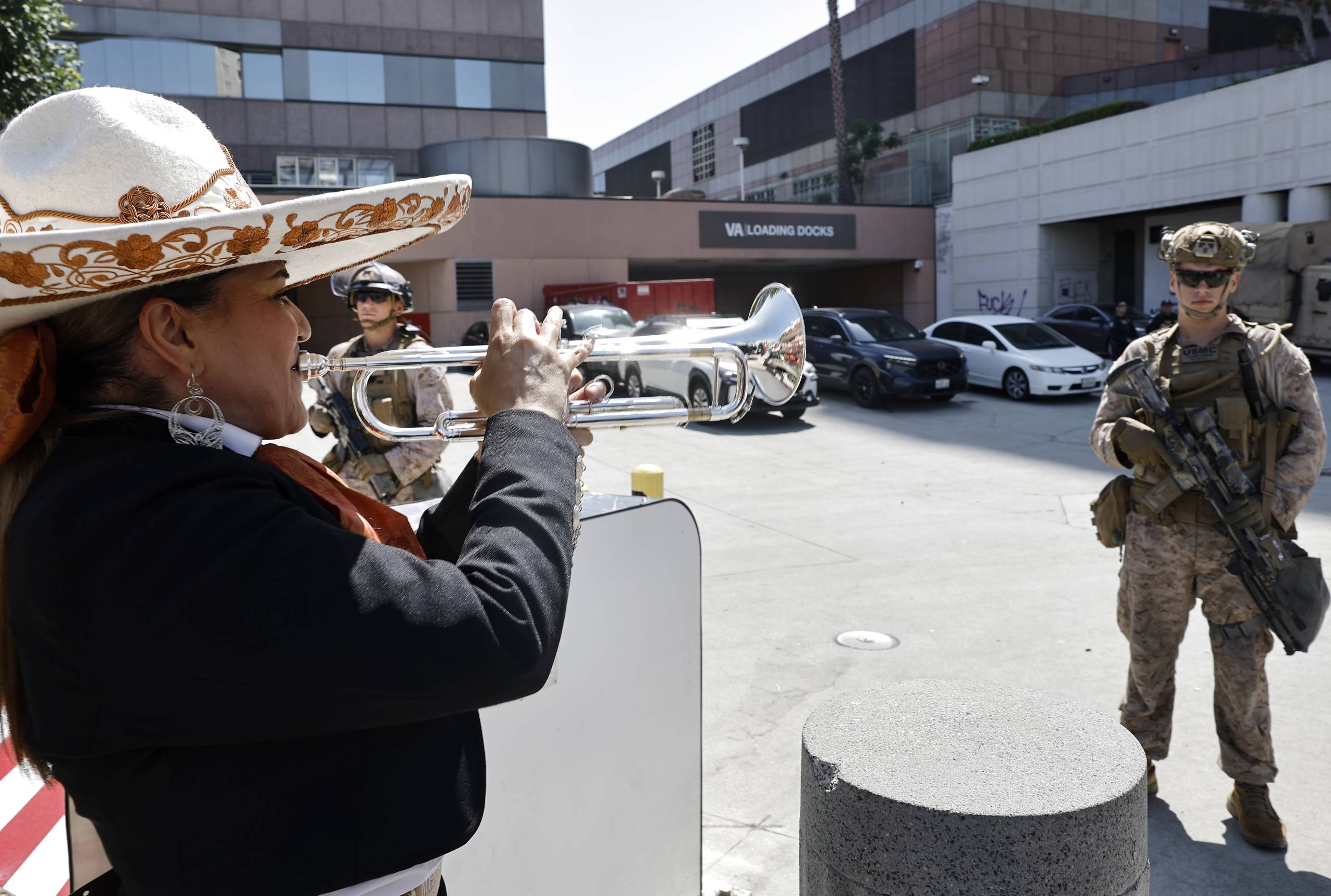California is arguing that the district court has jurisdiction to weigh in on questions not addressed by the appeals court, and is asking Breyer to take arguments on those issues and consider issuing a preliminary injunction in July. The Trump brief argues that the lower court has no jurisdiction over the state’s claims, saying the 9th Circuit’s decision prevents Breyer from weighing in more for now.
At issue are 4,000 National Guard troops and 700 U.S. Marines called up by Trump earlier this month as immigration raids in L.A. sparked protests. The president said the troops were necessary to protect federal officials and property, while local and state officials called their deployment unnecessary, provocative and illegal.
 Mariachi musician Maricela Martinez performs towards U.S. Marines guarding a federal building during a protest by mariachi and folklorico dancers in response to immigration raids on June 20, 2025 in Los Angeles, California. (Photo by Mario Tama/Getty Images)
Mariachi musician Maricela Martinez performs towards U.S. Marines guarding a federal building during a protest by mariachi and folklorico dancers in response to immigration raids on June 20, 2025 in Los Angeles, California. (Photo by Mario Tama/Getty Images)
Lawyers for California say Breyer should now consider two questions not taken up in the appeals court ruling: how long the deployment of the National Guard can last, and whether that deployment violates an 1878 law, known as the Posse Comitatus Act, which bars using the military for domestic law enforcement purposes.
“Deciding those issues would not ‘modify’ the TRO Order nor alter the ‘status quo’ between the parties with respect to the issues pending on appeal in the way that renewing or bolstering this Court’s order to de-federalize the Guard would,” the brief states. “Rather, the court would be ruling only on how the federal troops would be used for how long, and where — issues that the Ninth Circuit acknowledged are not now before the appellate court.”
In his initial restraining order, Breyer “explicitly declined” to consider California’s claims under the Posse Comitatus Act “until a more complete factual record could be developed,” the state noted. And the appeals court, the state wrote, recognized that California planned to continue pursuing that claim.
California also contends that Breyer has jurisdiction to weigh in on how long the troops may stay deployed to L.A. because the appeals court decision was based on the facts on the ground weeks ago.
“Although the Ninth Circuit held that, on the TRO record before it, conditions in and around the federal building in Los Angeles on June 6 and 7 likely satisfied Section 12406(3)’s factual predicate for federalization of National Guard units in the first place, the Ninth Circuit did not consider, nor did the parties present, the questions of how long such federalization is permissible in the face of changed circumstances or whether those federalized troops may be deployed in areas where those conditions never existed or have ceased to exist,” the state’s brief says.
